Theorizing Empowerment: Canadian Perspectives on Black Feminist Thought is a collection of articles by Black Canadian feminists centralizing the ways in which Black femininity and Black women’s experiences are integral to understanding political and social frameworks in Canada. What does Black feminist thought mean to Black Canadian feminists in the Diaspora? What does it means to have a feminist practice which speaks to Black women in Canada? In exploring this question, this anthology collects new ideas and thoughts on the place of Black women’s politics in Canada, combining the work of new/upcoming and established names in Black Canadian feminist studies.
There are very few collections within Canada that have been produced with a Black Canadian feminist agenda in mind. This book stands out as a landmark contribution to feminist scholarship in general and the new and emerging area of Canadian Black feminist thought specifically. More broadly, this anthology is a celebration of Black Canadian women’s lives, situating those lives in the Canadian landscape, and giving context and meaning to those lives in Canadian feminist theory and politics. More broadly, this anthology is a celebration of Black Canadian women’s lives, situating those lives in the Canadian landscape, and giving context and meaning to those lives in Canadian feminist theory and politics.
“Theorizing Empowerment: Canadian Perspectives on Black Feminist Thought is a welcome addition to feminist theorizing in this country. The authors argue convincingly and beautifully for a Black feminism that is uniquely Canadian, yet situated in a globalized, transnational world, a feminism that looks to the future while respecting the past. The eloquent introduction and the chapters that follow speak to the challenges and accomplishments of Black women in Canada, and they challenge white women to join the urgent political project of extending feminist epistemologies and strategies. The authors of this book do not ask for simple inclusion in the house of feminism, rather they insist on rebuilding that house from the ground up.”
– Kari Dehli, Chair, Dept. of Sociology and Equity Studies in Education, OISE/University of Toronto
Jewel Amoah is a human rights lawyer whose passion for equality rights has been the catalyst for her advocacy work with members of vulnerable groups in Canada as well as various parts of Southern and West Africa. Currently, as Counsel in the Equity Initiatives Department at the Law Society of Upper Canada, Jewel contributes to policy development to enhance equity and diversity in the legal profession in Ontario. At the same time, as a doctoral candidate in the Faculty of Law at the University of Cape Town, Jewel is examining the equality rights accessible to the girl-child under South African customary law. Research into the intersecting identities of the African girl-child has, for Jewel, emphasized the importance of appreciating where each of us sits at the intersection of our own identities. Her published articles include “Back on the Auction Block: A Discussion of Black Women and Pornography (1997), “Narrative: The Road to Black Feminist Theory” (1997), and “The World on Her Shoulders: The Rights of The Girl-Child in the Context of Culture and Identity (2007).
Yvonne Bobb-Smith is originally from Trinidad and Tobago and currently works throughout the Caribbean assisting in social and educational research as well as facilitating community programmes to encourage women in political leadership. She holds a Ph.D. in Adult Education from the Ontario Institute for Studies in Education of the University of Toronto, which she began at retirement age and completed in 1998. Her publications include her book, I Know Who I Am: A Caribbean Woman’s Identity in Canada (2003). She has taught Caribbean Studies both at Ryerson University and New College, University of Toronto. She was notably first Executive Director of the Black Secretariat of Canada.
Shirley Chau is an Assistant Professor at the School of Social Work at the University of British Columbia, in Kelowna, British Columbia. Shirley’s research interests are in the health and wellbeing of vulnerable and marginalized populations (e.g., Chinese older adults, homeless youth), psychological trauma and health outcomes, youth at risk, antiracist and anti-oppressive social work practice, and barriers to service access in marginalized populations. Previous to her academic appointment, she practiced as a clinical social worker working in the areas of individual and family counselling, work and wellness, and crisis intervention in organizations. She currently teaches courses in social work research methods and knowledge utilization, Canadian social policy and social welfare, and social work practice with individuals.
Linda Cornwell is the Program and Communications Manager at Women’s Health in Women’s Hands Community Health Centre. She has worked extensively with immigrant/refugee women, women with disabilities and older women from ethno racial communities in her capacity at the Health Centre. She is a member of the Women’s Committee of Ethno Racial People with Disabilities Coalition of Ontario, the Canadian Women’s Health Network Expert Review Committee and the Toronto Community Housing Mental Health Framework Advisory Committee. Linda’s knowledge of Female Ge-nital Mutilation (fgm) was acquired in her work as an assistant to Hawa Mohammed, a long time activist in Somalia and in Canada for the eradication of fgm. It was from Hawa and other brave women from communities where fgm is practised that Linda learned about the imperative for fgm eradication strategies developed by and for the community.
Charmaine Crawford is a doctoral candidate in the Graduate Women’s Studies Programme at York University in Toronto, Canada. She is currently a temporary lecturer at the Centre for Gender and Development Studies at The University of the West Indies, Cave Hill Campus, Barbados. Her research interests include: gender, labour and globalization; Caribbean foreign domestics; Caribbean women and transnational motherhood; diasporic identities; and black and anti-racist feminist theorizing.
Joan Grant Cummings has worked for over 24 years as an educator, feminist, and immigrant and refugee rights activist as well as a development specialist in Canada and now in Jamaica. She has served on the Board of over a dozen organizations such as Working Skills Centre for Immigrant and Refugee Women, Intercede: Toronto Organization for the Rights of Domestic Workers Caregivers and Their Families. She was appointed by the Premier of Ontario to the Council of Regents (1993), and was a part of the conceptual and later implementation team for the development of Women’s Health In Women’s Hands (whiwh). She was elected Treasurer of the National Action Committee (nac) on the Status of Women in 1995, elected as its first African Canadian President in 1996, and served an unprecedented four years as nac’s President. She has been honoured extensively by the Black and the women’s communities with such awards as the badc Equality and Social Development Award; jca Volunteer of the Year; Ujamaa Young People’s Association Volunteer of the Year; Rubena Willis Remarkable Women; Women’s Intercultural Network Award; City of Toronto, Constance B. Hamilton Award, and the ywca Women of Distinction Award. Joan currently resides in Jamaica where she is the ceo of the Environmental Foundation of Jamaica, the largest donor organization to non-governmental organizatios in Jamaica. She is currently a member of the Inter-American Development Bank (idb-Jamaica) Civil Society Advisory Committee, chairs the Commonwealth Foundation’s Civil Society Advisory Committee (pan-Commonwealth) and is a member of the Development Alternatives for Women for A New Era (dawn)’s Caribbean Regional Coordinating Committee. Joan is married to Everton and they have one son, Khiry.
LLana James is the Executive Director of Peel hiv/aids Network. Her professional experience includes building the capacity of communities, service providers, governance systems and infrastructure to effectively and proactively respond to equity and access issues at the federal, provincial and local levels. Her publications include the first African and Caribbean hiv Prevention Guidelines and Manual in Canada, as well as A Best Practices Primer: Applying an Intersectional Approach to Working With Marginalized Communities and Changing with the Times, The Rape Crisis Movement 25 Later: Renewing Advocacy and Policy Work in Ontario. She is currently a Masters Student in Environmental Studies at York University.
Amal Madibbo is Assistant Professor in the Department of Sociology at the University of Calgary University, Alberta. Her research focuses on race and antiracism; Black Francophone migration to Canada; linguistic minorities, and race and ethnicity in Sub-Saharan Africa.
Notisha Massaquoi is currently the Executive Director of Women’s Health in Women’s Hands Community Health Centre for Black Women and Women of Colour. She is also an instructor in the Faculty of Social Work at Ryerson University. She is completing her Ph.D. in the Department of Sociology and Equity Studies at the Ontario Institute for Studies in Education of the University of Toronto. Her community-based research and publications address access to health care for Black women and women of colour, the impact of hiv/aids on African and Caribbean women in Canada, and issues of Queer Africans globally.
Erica Neegan is a Ph.D. candidate at the University of Toronto. Her research interest includes: Indigenous knowledges, spirituality, and decolonizing pedagogy.
Bathseba Opini is completing her Ph.D. in the Department of Sociology and Equity Studies in Education at the Ontario Institute for Studies in Education of the University of Toronto. Her research interests are in disability studies, race, class, gender, feminist theory, teacher education, indigenous knowledges, and how these issues implicate social justice.
Rai Reece is currently a Ph.D. candidate in the School of Women’s Studies at York University. Her research focuses on exploring how Canadian capitalist regimes of incarceration and detention are mediated through a racialized and gendered lens in relation to federally sentenced Black women in Canada. In addition, she is the Women’s Prison Support Coordinator at Prisoners hiv/aids Support Action Network (pasan). She has coordinated projects and conducted workshops that focus on culturally-conscious approaches to eradicating violence against women and children. She is also a member of the Prisoners’ Justice Action Committee.
Wangari Esther Tharao is currently the Program and Research Manager at Women’s Health in Women’s Hands Community Health Centre. Her expertise is in the areas of hiv/aids, Female Genital Mutilation and other health issues affecting black women and women of color. She has served on various working groups/advisory committees including the Ontario Advisory Committee on hiv/aids (oacha), The Ministerial Council of the Canadian hiv/aids Strategy and is currently a Co-Chair of the African and Caribbean Council on hiv/aids in Ontario (accho). She is involved in both academic and community based research and the transfer of scientific knowledge into practice to build evidence based programs and improve services for black women and women of color in Ontario and Canada as a whole. She is a Ph.D. student at the University of Toronto, Department of Public Health Sciences, Social Science and Health Program.
Roberta K. Timothy is an African woman of Caribbean background living with a visual (dis) ability in Toronto, Canada . Her resistance, activism, and work all focus on feminist, anti-colonial, anti-racist theory, praxis, and therapy, through the use of anti-oppression methodologies, the arts, and other political tools of resistance. Her publications include articles and poetry in Fireweed and Convergence. She has also written, performed, and published in several community work-related projects and political theatre endeavours. In 2007, Roberta completed her Ph.D. in Adult Education, Community Development and Women’s Studies at the Ontario Institute for Studies in Education of the University of Toronto. She also teaches courses in Political Science and Women’s Studies at several universities in Ontario, and consults both locally and globally on areas pertaining to intersectional violence and Resistance Education.
Njoki Nathani Wane, Ph.D., is an Associate Professor at the University of Toronto, Department of Sociology and Equity Studies at the Ontario Institute for Studies in Education. She is also the current Director of the Centre for Integrative Anti-Racist Research Studies. For the last ten years she has been teaching and researching in the areas of Black feminisms in Canada, African feminisms, African Indigenous knowledges, anti-racist education, teacher education, African women and spirituality, and ethno-medicine. She has been published widely in journals and anthologies in the areas of African women and Indigenous knowledges, Black Canadian feminisms, African women and spirituality, and anti-colonial thought. Her co-edited book (with Katerina Deliovsky and Erica Lawson), Back to the Drawing Board: African Canadian Feminisms, was published by Sumach Press in 2002.
Charmaine C. Williams is an Associate Professor at the University of Toronto, Faculty of Social Work. She was appointed as the Anti-Racism Officer for the University of Toronto campuses during the 2004-05 academic year. Her practice experience includes organizational development for anti-racist and diversity-focused change, and the development and delivery of professional development programs concentrated on mental illness, addictions, diversity, and cultural competence. Her research and scholarship activities address living with mental illness, anti-racism, cultural competence, access and equity in the provision of health and social services.
d’bi.young.anitafrika is a visionary. An internationally celebrated dub poet, actor, playwright, and community worker, young.anitafrika has published two books, produced four dub albums, and has story-told nationally and internationally. Her performance work includes “da kink in my hair,” “Lord Have Mercy,” Brecht’s “Three Penny Opera,” and Chekhov’s “Three Sisters,” as well as her very own Dora-award winning play “blood-claat.” Having been raised by a village of storytellers, young.anitafrika consistently teaches and mentors younger artists in a range of socio-economic, political and cultural settings. Currently she is preparing for the launch of her third book of dub poetry, rivers… (Women’s Press) and completing the third play in her “blood.claat” trilogy, a dub opera: “word! sound! powah!” Visit her website at: www.dbiyoung.net.
Acknowledgements
Foreword
Joan Grant Cummings
love equality freedom and revolushun
d’bi.young.anitafrika
Introduction: Future Imaginings of Black Feminist Thought
Notisha Massaquoi
Black Feminist Spiritualities: Where It All Begins
African Women’s Indigenous Spirituality: Bringing It All Home
Njoki Nathani Wane and Erica Neegan
Practicing African Spirituality: Insights from Zulu-Latifa, an African Woman Healer
Njoki Nathani Wane
“We Get Troo…”: Caribbean Canadian Women’s Spirituality as a Strategy of Resistance
Yvonne Bobb-Smith
Black Canadian Feminist Histories and Frameworks:
Reclaiming Our “Place”
An Unsettled Feminist Discourse
Notisha Massaquoi
Building Sandcastles in the Snow: Meanings and Misconceptions of the Development of Black Feminist Theory in Canada
Jewel Amoah
Black Women, Racing and Gendering the Canadian Nation
Charmaine Crawford
African Women and Canadian History: Demanding Our Place in the Curriculum
Njoki Nathani Wane
Black Canadian Feminist Experiences and Struggles: Multiple Jeopardy
“Third World Women,” “Women of Colour,” and “Minority Women”: An African/Black Feminist Analysis of Our Identities
Roberta K. Timothy
When Race Structures “Beingness”: The Experiences of African Canadian Women in a Place They Call Home
Bathseba Opini and Njoki Nathani Wane
Race, Language and la Francophonie: Black Francophones Caught Between Racism and Linguicism
Amal Madibbo
Censure and Silence: Sexual Violence and Women of the African Diaspora
LLana James
Black Canadian Feminist Discourses and Practices: Organizing for Change
Feminist Leadership and Female Genital Mutilation in Canada: A Community Health Centre’s Advocacy and fgm Eradication Efforts
Wangari Esther Tharao and Linda Cornwell
Canadian Black Feminist Thought and Scholar-Activist Praxis
Rai Reece
Notes on Feminism, Racism and Sisterhood
Charmaine C. Williams and Shirley Chau
ConclusionL Canadian Black Feminist Thought: Re-Imagining New Possibilities for Empowerment
Njoki Nathani Wane
Contributor Notes

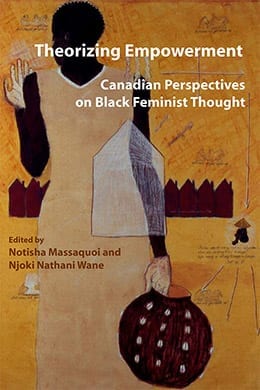

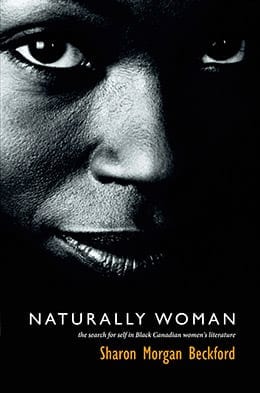
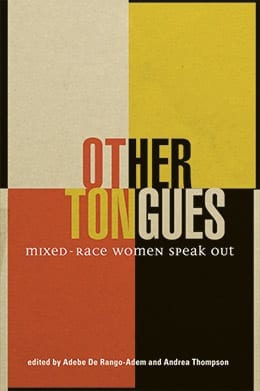
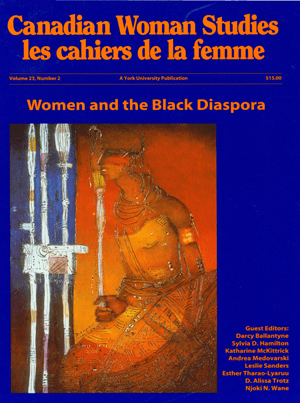
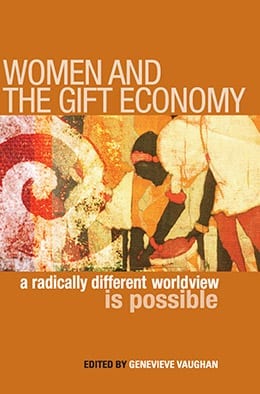
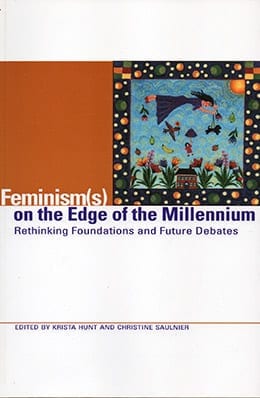
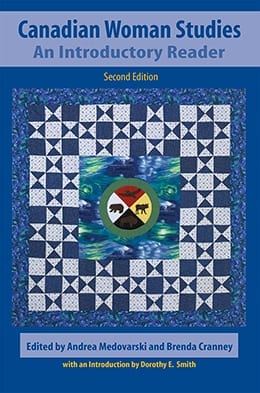
InannaWebmaster –
“Massaquoi and Wane have gathered together a powerful and inspiring collection of writings by Canadian Black feminist scholars, artists and activists. Sustained by the spirits of their foremothers, strengthened by collective memories of slavery, migration and resistance, the courageous women in these pages offer a radical vision of personal empowerment and social transformation.”
– Julia Sudbury, Professor of Ethnic Studies, Mills College
“It is indeed empowering to read the new critical imaginings of Canadian Black Feminist scholar/activists as they theorize the fractured and shifting spaces of identity, community, and nation in a globalized post-modern world. This collection provides a powerful set of essays that inscribe new discursive pathways for Black women’s articulations of subjectivity, spirituality, and engaged political praxis against the myriad forms of oppression they confront. Beautifully written and intellectually exciting, this work is inspirational for all women of colour who seek to reclaim their narratives and construct their own foundations for feminist theorizing and praxis from an indigenous, anti-colonial standpoint. This is a timely and vital contribution to anti-racist feminist discourse from a uniquely Canadian vantage point.”
– Jasmin Zine, Assistant Professor, Department of Sociology, Wilfrid Laurier University
“This thoughtful, provocative, and rejuvenating collection of essays holds the promise of profound possibilities for transformation at the personal, social, political and global levels by challenging readers to acknowledge the heterogeneity of Black women’s thinking, their realities, wisdom, creativity, resilience, resistance, strength and spirituality. The anthology’s spirit reflects the contributors’ commitment to transformational education, empowerment, spirit healing, and self-agency. This book is a must read for people looking for alternate epistemologies and methodologies for creating spaces for personal and political engagement and resistance.”
– Sabra Desai, Social Service Worker Program, Humber Institute of Technology and Advanced Learning
“Editor-writers Njoki Nathani Wane and Notisha Massaquoi have broken new ground by compiling a wide-ranging collection of articles that simultaneously speaks to the breadth and commonality of our experiences. This anthology is long overdue and brings a fresh and welcome perspective to the development of Black Canadian feminist thought.”
– Sandy Thomas, Lawyer and Founding President of the Canadian Association of Black Lawyers (CABL)